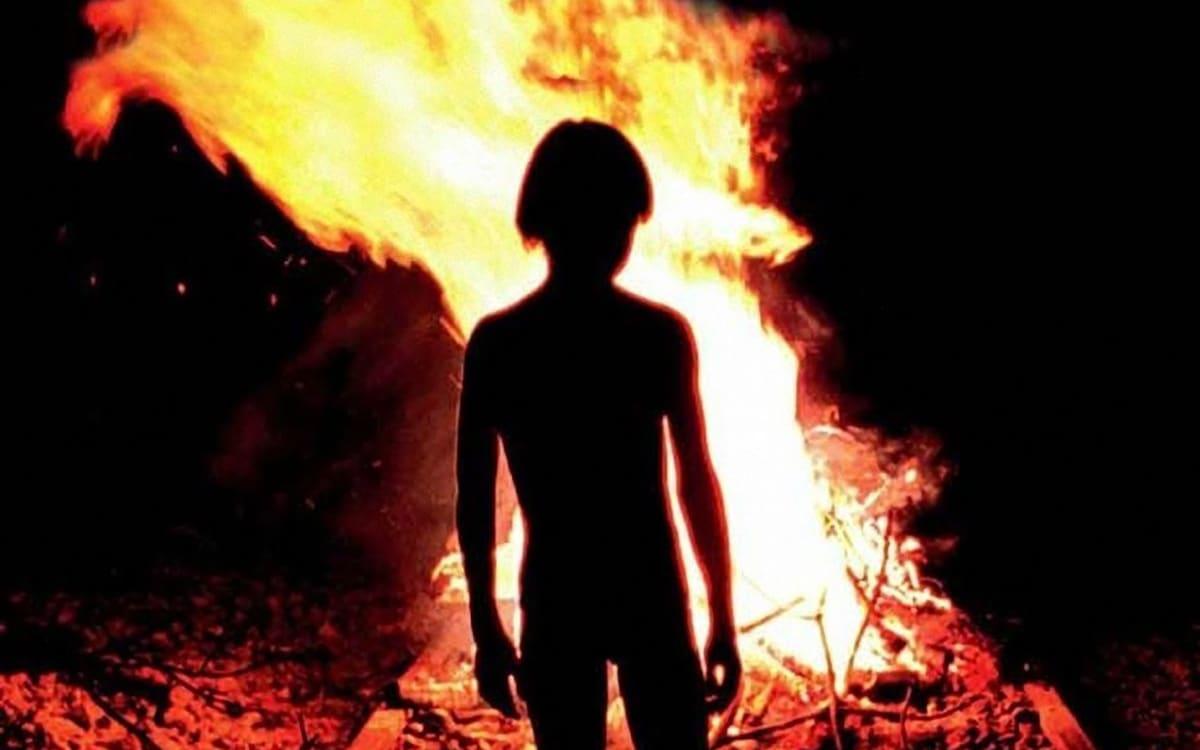Time of the Wolf by Michael Haneke (Review)

Most films about the apocalypse tend to focus on the actual cataclysm and the days leading up to it. The tension in those movies comes from whether or not disaster can be averted, what can be done to save the human race, and whether or not the special effects budget was big enough to convey the necessary amount of carnage. Michael Haneke’s Time of the Wolf takes the exact opposite approach. What if the apocalypse already happened and nothing could be done to stop it. What then? How does humanity carry on? How do we pick up the pieces?
As such, Time of the Wolf never feels like your typical apocalypse movie, at least for those of us, such as myself, who have been weaned on Hollywood’s disasters. In fact, the apocalypse is never even mentioned in the film, though it’s clear from the brief snatches of terse dialog about rations, energy conservation, and from the eerily abandoned countrysides littered with dead animals, that something has happened.
Whatever it is, people are trying to escape it. As the film opens, Anna (Isabelle Huppert), her husband, and her two children are retreating to their vacation home, a cabin located deep in the forest. When they arrive, they find the cabin is already occupied by another family. In the ensuing confusion, Anna’s husband is shot and she and her children — Eva and Ben — are left with only a bicycle, a little food, and the clothes on their back. Noone back in town will help them, and so the three set off across the eerie countryside, looking for shelter.
They encounter a young, thieving shepherd boy who tells them of a train station where they might find passage. When they arrive at the train station, other refugees are there as well. The station offers some protection, but it is under the strict rule of Koslowski (Olivier Gourmet, whose appearance and demeanor is worlds removed from his performance in The Son). All of them are waiting for a train that might never come, and as the days wear on, tensions begin to build up and up.
Haneke seems to have a pretty dim view of humanity, if this film is any indication. When stripped of the veneer of modern society, people become selfish and greedy — or increasingly weak and marginalized. Petty disagreements become major outbursts and rational discussion is unheard of. And yet who can blame them. The whole world seems to be falling apart around them.
Some glimmer of hope appears when another group of survivors arrive. These actually seem to have some semblance of order and purpose, and what’s more, they come loaded with supplies. Anna’s group fits in, but tempers are on a razor thin edge and only the slightest of provocation is needed to threaten the security and sanctity of the entire group. The veneer of society is there, but it’s merely that — a veneer, and terrible deeds still occur, all in the name of survival.
The only two who seem to strive for something better, something nobler and better, are Anna’s children. Eva expresses concern for the young boy who brought them to the station, and who still remains an outsider of his own choosing. He isn’t afraid to steal and lie in order to survive, even when Eva promises to protect and defend him. Benny, who has been rendered mute by the ordeal, attempts an even nobler act, one that is displayed prominently on the DVD cover.
With these two characters, Haneke brings a stark contrast to his otherwise pessimistic worldview. The only things that can redeem humanity are forgiveness, love, sacrifice, grace, mercy. Normally, the inclusion of such obvious ideas would result in some treacly, teary-eyed climax, augmented by a John Williams score. However, those themes, which I admit can come across pretty cheesily if handled improperly, come through much more strongly because of the stark, sparse setting of the film.
In Time of the Wolf, humanity is boiled down to its barest essentials, and as such, much ugliness does arise. But because of the depths of that ugliness, the kindness rendered by Eva and the selflessness of Ben is allowed to shine that much more brightly. Because, however, such ugliness is on display, Time of the Wolf can be rather difficult viewing at times. Much blood is spilled, some human and some animal (one scene involving horses being slaughtered is especially cringe-inducing).
The film also stumbles at places because Haneke relies so much on the human interaction to convey the tension of the situation. There are times when I would’ve appreciated something exterior, something a little more tangible than emergency radio broadcasts to convey the dire situation surrounding the characters. Of course, that’s difficult to do since the film is set in the days following the disaster, and of course, once you start down that path, it’s easy to end up in the same boat as Hollywood disasters, where the focus is on the spectacle of destruction rather than on the characters.
So, when all is said and done, I’m glad that Time of the Wolf places the emphasis on the characters. In doing so, Hanake seems to be saying that even when the world is gone, the true apocalypse will always come from within the human soul. But that might also be where salvation lies as well.
